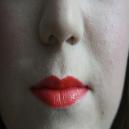Surgeons have successfully transplanted a larynx for the second time in history, giving a fifty-two year old Californian back her voice. Brenda Jenson was operated on for eighteen hours at the University of California, Davis Medical Center, and was able to form her first words after nearly two weeks. She spent four weeks in the hospital following the surgery, and while her speech was very weak at first, it improved rapidly. After weeks of rehabilitation, Jenson met the whole surgical team for the first time.
Jensen expressed her gratitude and said “This operation has restored my life. I feel so blessed to have been given this opportunity. It is a miracle, I’m talking, talking, talking which just amazes my friends and family. Every day is a new beginning for me. I’m working so hard to use my vocal cords and train my muscles to swallow… I’ll probably never sing in a choir or anything, but it’s exciting to talk normally and I can’t wait to eat and drink and swim again.”
Generally, the risks of rejection and nerve damage to the larynx prevent doctors from attempting this transplant. In fact, the only other such transplant recorded took place in 1998. Jensen was an unusually fitting candidate for the surgery, though, as she had recently undergone both kidney and pancreas transplants, and was already used to the immunosuppressive medications required following a transplant.
Professor Martin Birchall, who was part of the surgical team, said “The larynx is one of the most sophisticated neuromuscular organs in the body. We’ve learned that we can repair nerves to make even very complex organs function again. It’ll open the door to better facial transplants and will be extremely important as tissue engineering develops.”

 Numerous researchers have reached the same conclusion: O blood type might protect the body from heart attacks once arteries are clogged.
Numerous researchers have reached the same conclusion: O blood type might protect the body from heart attacks once arteries are clogged. In one of the first American viral videos of 2011, Ted Williams, a homeless man, is taped while begging for money with a rich, baritone radio voice. The fifty-three year old former radio announcer came upon unfortunate times as a result of drugs and alcohol. The Columbus Dispatch Newspaper posted the video on Monday, and it spread like wildfire. By Thursday, Williams was featured on morning news programs including The Today Show, on which he discussed new voice-over job offers with the Cleveland Cavaliers, as well as his unbelievably sudden rise to fame.
In one of the first American viral videos of 2011, Ted Williams, a homeless man, is taped while begging for money with a rich, baritone radio voice. The fifty-three year old former radio announcer came upon unfortunate times as a result of drugs and alcohol. The Columbus Dispatch Newspaper posted the video on Monday, and it spread like wildfire. By Thursday, Williams was featured on morning news programs including The Today Show, on which he discussed new voice-over job offers with the Cleveland Cavaliers, as well as his unbelievably sudden rise to fame.  Scientists are developing a new technology to increase road safety. “Too drunk? Your car won’t go along for the ride,” they say. The new technology includes either a set of passive sensors installed permanently in the vehicle, or touch-sensitive areas on a key fob or starter button. The sensors will be able to identify the level of alcohol in the driver’s bloodstream. If it is found to be too high, the car won’t start.
Scientists are developing a new technology to increase road safety. “Too drunk? Your car won’t go along for the ride,” they say. The new technology includes either a set of passive sensors installed permanently in the vehicle, or touch-sensitive areas on a key fob or starter button. The sensors will be able to identify the level of alcohol in the driver’s bloodstream. If it is found to be too high, the car won’t start.